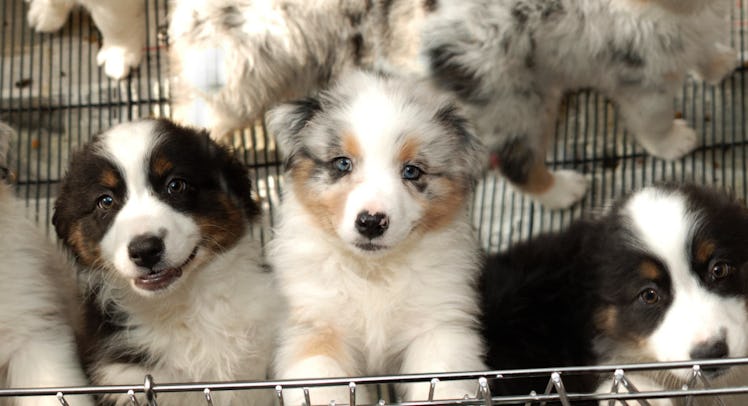Who’s a Good Boy? There’s Now an Algorithm To Find Out.
This questionnaire can predict whether a puppy will successfully complete guide dog training with 84% accuracy.

Before you choose a puppy, perhaps you should ask the current owner to complete a detailed questionnaire. A week ago, that suggestion would have sounded absurd, but a new study of 1,400 dogs describes a novel dog behavior questionnaire that is so good at capturing canine behavior that it can predict whether a one-year-old dog will successfully complete guide dog training with 84 percent accuracy. In short, these questions could help dog buyers to separate the good dogs from the good dogs–though it’s a bit more complicated than that.
The questionnaire, constructed based on the results of several prior studies and extensive consultation with dog trainers, could become a crucial tool for organizations that train guide dogs. “If a dog simply isn’t suited to the training process, then it’s better for everyone that the dog is identified before they enter training, which is very costly and time consuming,” coauthor on the study Naomi Harvey of the University of Nottingham told Fatherly. “Dogs that aren’t suitable can then be re-homed earlier.”
Whether the average dad can parlay that into a scientific solution to picking out the perfect dog from a litter, however, is less clear. Harvey points to some of her own prior work, which describes a questionnaire for puppy walkers that may be better-suited for use with non-service animals. This new questionnaire, however, is likely not ideal for pointing out the perfect family pooch.
“Because the questions were bespoke to guide dogs, a few of them may need to be tweaked to be used for dogs from other organizations,” she says. “The language is very accessible and could be used by anyone. All you need is to be familiar with the target dog, and have experience of them over time and in different situations. However, it was designed for use with dogs aged five months and up, so it’s not something that could be used for puppies in the nest.”
Besides, Harvey asks, does the perfect family dog really exist? An excitable, energetic ball of fur could be a blessing for a family with young kids but a curse for a single dad with a newborn. Service dogs need to not run after squirrels and instead focus on helping people cross the street. But for many families, isn’t there far more joy in watching Fido chase his tail?
But even if Harvey doesn’t necessarily see immediate applications for would-be dog owners, she hopes her study will be modified to help other working dog organizations choose winners from the litter.
“If the same tool is used by everyone it will allow different organizations to share dogs that might be suitable to different jobs,” she says. “For example police/military puppies that are too friendly for that work could perhaps become service dogs instead if they had the right behavioral profile, and dogs not suited to guiding work may be suited to work as a hearing dog or assistance dog.”
This article was originally published on